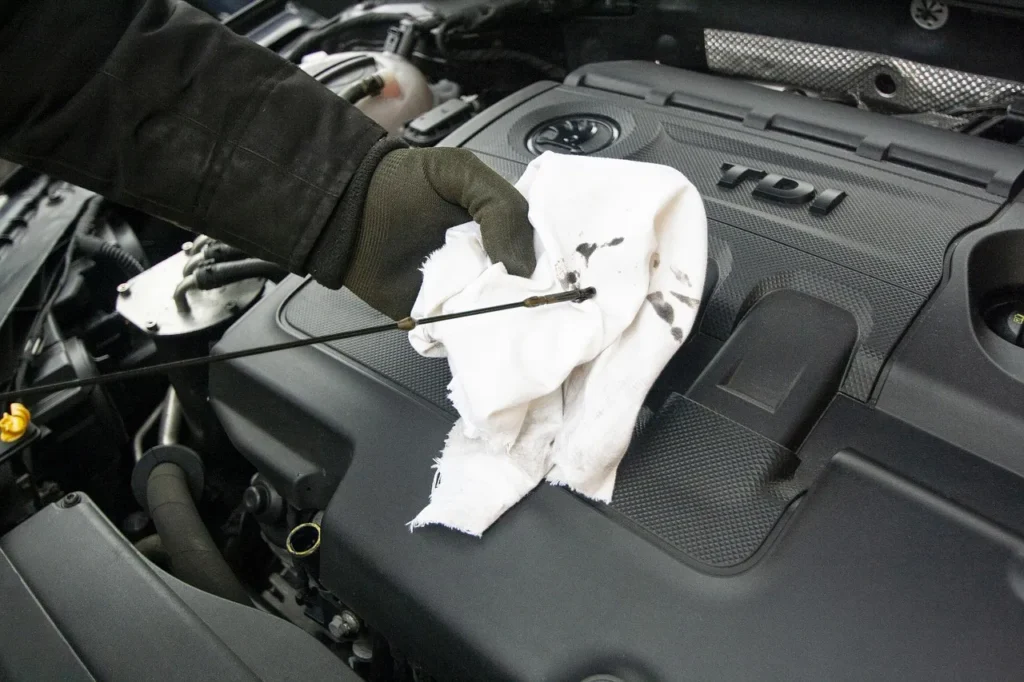Engine oil is the lifeline of your engine. It has a significant function in maintaining your car in running condition for a long duration, smoothly and efficiently. Without lubrication, moving parts within your engine would become damaged in a very short period, resulting in costly repairs or total engine breakdown.
Regardless of whether you have a gasoline or diesel engine, it is important to use the correct type of car oil for performance and longevity. This article delves into why motor oil is so important, the various types that exist, and how to make sure your car receives the best possible care.
The Role of Motor Oil in Your Vehicle
Engine oil serves multiple purposes in keeping your vehicle’s engine running properly. Here are some of the key functions:
- Lubrication: The primary role of motor oil is to lubricate the moving parts of the engine, reducing friction and preventing wear and tear.
- Cooling: Oil helps in dissipating heat away from the engine components. Vehicles equipped with an motor oil cooler benefit from even better temperature regulation.
- Cleaning: Engine oil carries away dirt, debris, and combustion byproducts, preventing sludge buildup and keeping the engine clean.
- Protection Against Corrosion: Quality oils protect metal surfaces inside the engine from rust and corrosion.

Types of Engine Lubricant
There are several types of motor oils available, and choosing the right one depends on your vehicle’s needs:
- Conventional Oil: Made from crude oil, it is the most basic type of motor oil but requires frequent changes.
- Full Synthetic Motor Oils: These oils are chemically engineered for superior performance and longevity. They offer excellent protection for high mileage vehicles and extreme conditions.
- Synthetic Blend Motor Oil: A mix of conventional and synthetic oils, synthetic blends provide better protection than conventional oils but at a lower cost than full synthetics.
- 2 Cycle Engine Oil: This is a special type of oil used in smaller engines, such as motorcycles and outboard motors, that require a fuel-oil mixture.
Why Oil Quality Matters
Employing quality motor oil can make a big difference in your car’s performance and longevity. Poorer oils will degrade rapidly, causing sludge formation, increased friction, and engine wear. Better oils retain their viscosity longer and offer superior protection against engine wear.
Viscosity and Oil Grades
Motor Oils come in different viscosity grades, which determine how well the oil flows under different temperatures. Oils are designated with numbers such as 5W-30 or 10W-40, where the first number represents the oil’s viscosity in cold temperatures, and the second number represents its viscosity at operating temperatures. A higher viscosity oil is thicker and may be beneficial for older, high mileage engines.
When and How to Change Your Engine Lubricant
Regular oil changes are essential for engine health. The frequency of oil changes depends on several factors, including the type of oil used, driving conditions, and manufacturer recommendations. Most vehicles require an oil change every 3,000 to 7,500 miles, though full synthetic motor oils often last longer.
How to Properly Dispose of Motor Oil
Used motor oil is hazardous and should never be dumped in the trash, down the drain, or onto the ground. Many auto shops and recycling centers accept used oil for proper disposal. Always store used oil in a sealed container and take it to a designated recycling facility.
FAQs
What happens if I don’t put oil in my car?
Without motor oil, the moving parts inside your engine will grind against each other, causing excessive wear, overheating, and eventually leading to complete engine failure.
What happens when Engine Lubricant is low?
Low oil levels reduce lubrication, leading to increased friction and heat, which can cause significant engine damage over time.
What 4 things does oil do for an engine?
Motor oil lubricates, cools, cleans, and protects the engine from corrosion.
Does oil enhance engine performance?
Proper use of quality motor oil assists in keeping the engine at its best performance by minimizing friction and avoiding excessive wear. It does not, however, directly enhance horsepower or acceleration.
How to get rid of engine oil?
Used oil must be brought to a certified recycling facility or an automobile repair shop that accepts used oil for disposal.
Conclusion
Engine Lubricant oil is a vital component of vehicle maintenance. Choosing the right oil—whether conventional oil, synthetic blend motor oil, or full synthetic motor oils—and changing it regularly ensures that your engine runs efficiently and lasts longer. Always consult your vehicle manual to learn what type of oil is best for your particular engine and how often it should be changed.
Utilizing good-quality oil and having it recycled maintains not only your car’s functioning but the environment as well. When your car requires work, finding reliable car repair professionals is essential whether you need transmission repair or a complete body makeover.
Autoworxde has built a reputation as the go-to destination for all things auto repair. They offer various services, from engine diagnostics to collision repair; they provide a one-stop shop for maintaining and restoring your vehicle’s performance and aesthetics.
